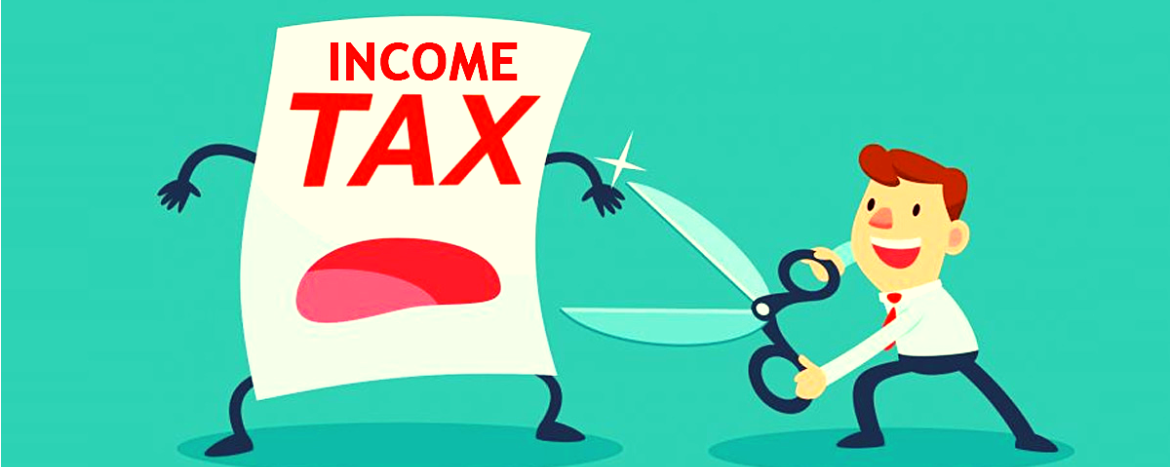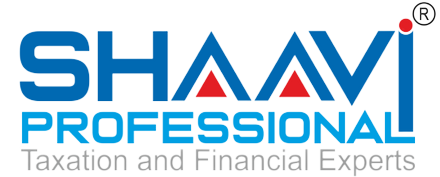
Income Tax Return
Income Tax Return (ITR) is a form that a person is supposed to submit to the Income Tax Department of India. It contains information about the person’s income and the taxes to be paid on it during the year. Income from salary, Profits, and gains from business and profession. Income from house property.
Income Tax Form:-
Types of Income Tax Return Forms: – To file tax returns Income Tax Department issued a series of forms applicable to different types of assesses:
- ITR 1: For Individuals having Income from Salaries, one house property, other sources (interest, etc.) and having a total income up to Rs.50 lakh.
- ITR 2: This form is applicable For Individuals & HUFs not carrying out business or profession under any proprietorship.
- ITR 3: This form is applicable For Individuals & HUFs having income from a proprietary business or profession.
- ITR 4: This form is applicable For presumptive income from Business & Profession.
- ITR 5: This form is applicable for For persons other than – (i) individual,(ii)HUF, (iii) company, and (iv)person filling ITR-7
- ITR 6: This form is applicable For Companies other than companies claiming exemption under section 11
- ITR 7: This form is applicable For persons including companies required to furnish returns under section 139(A) or section (1394B) or section 139(4C) or section 139(4D) or section 139(4E)
Benefits of Income Tax Return
- Save interest. Not filing ITR on time may lead to an interest in the tax payable.
- Avoid penalties up to Rs 10,000. There is a cost of filing a belated ITR.
- Avoid notice from the Income Tax department.
- Loan approval becomes easy.
- Carry forward losses.
Documents for Income Tax Return:-
- Pan Card
- Aadhar Card
- Address Place of Business
- E-mail ID
- Mobile No.
- Bank Statement
- Business Details
FAQ of Income Tax Return
It is a tax levied by the Government of India on the income of every person. The provisions governing the Income-tax are covered in the Income-tax Act, 1961.
The revenue functions of the Government of India are managed by the Ministry of Finance. The Finance Ministry has entrusted the task of administration of direct taxes like Income-tax, Wealth tax, etc., to the Central Board of Direct Taxes (CBDT). The CBDT is a part of Department of Revenue in the Ministry of Finance. CBDT provides essential inputs for policy framing and planning of direct taxes and also administers the direct tax laws through the Income-tax Department. Thus, Income-tax Law is administrated by the Income-tax Department under the control and supervision of the CBDT.
Income-tax is levied on the annual income of a person. The year under the Income-tax Law is the period starting from 1st April and ending on 31st March of next calendar year. The Income-tax Law classifies the year as (1) Previous year, and (2) Assessment year.
The year in which income is earned is called as previous year and the year in which the income is charged to tax is called as assessment year.
e.g., Income earned during the period of 1st April, 2021 to 31st March, 2022 is treated as income of the previous year 2021-22. Income of the previous year 2021-22 will be charged to tax in the next year, i.e., in the assessment year 2022-23.
Income-tax is to be paid by every person. The term ‘person’ as defined under the Income-tax Act under section 2(3) covers in its ambit natural as well as artificial persons.
For the purpose of charging Income-tax, the term ‘person’ includes Individual, Hindu Undivided Families [HUFs], Association of Persons [AOPs], Body of individuals [BOIs], Firms, LLPs, Companies, Local authority and any artificial juridical person not covered under any of the above.
Thus, from the definition of the term ‘person’ it can be observed that, apart from a natural person, i.e., an individual, any sort of artificial entity will also be liable to pay Income-tax.
The rates of Income-tax and corporate taxes are available in the Finance Act passed by the Parliament every year.
The tax that is to be paid by the companies on their income is called as corporate tax, and for payment of same in the challan it is mentioned as Income-tax on Companies (Corporation tax)-0020. Tax paid by non-corporate assessees is called as Income-tax, and for payment of the same in the challan it is to be mentioned as Income-tax (other than Companies)-0021.
Advance tax is to be calculated on the basis of expected tax liability of the year. Advance tax is to be paid in instalments as given below:
a) In case of all the assessees (other than the eligible assessees as referred to in section 44AD and 44ADA
- i) Atleast to 15 per cent – On or before 15th June
- ii) Atleast to 45 per cent – On or before 15th September
- iii) Atleast to 75 per cent – On or before 15th December
- iv) Atleast to 100 per cent –On or before 15th March
-
- b) In case of eligible assessee as referred to in
-
- and
-
100 per cent – On or before 15th March
Note: Any tax paid on or before 31st day of March shall also be treated as advance tax paid during the same financial year.
The deposit of advance tax is made through challan ITNS 280 by ticking the relevant column, i.e., advance tax.
Under the Income-tax Act, every person has the responsibility to correctly compute and pay his due taxes. Where the Department finds that there has been understatement of income and resultant tax due, it takes measures to compute the actual tax amount that ought to have been paid. This demand raised on the person is called as Tax on regular assessment. The tax on regular assessment-400 has to be paid within 30 days of receipt of the notice of demand .
An exempt income is not charged to tax, i.e., Income-tax Law specifically grants exemption from tax to such income. Incomes that are chargeable to tax are called taxable incomes.
